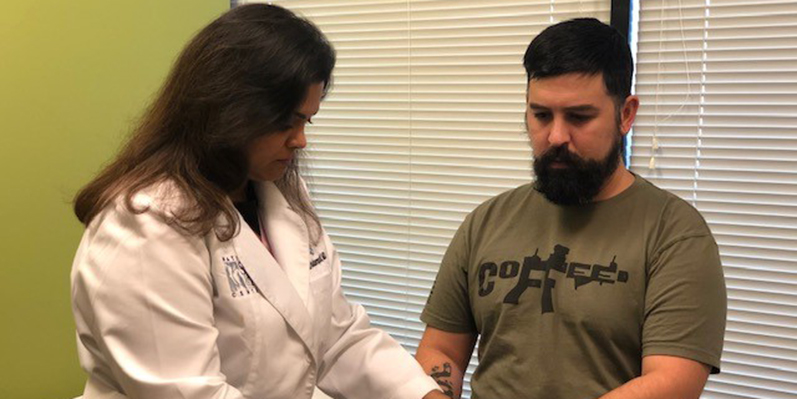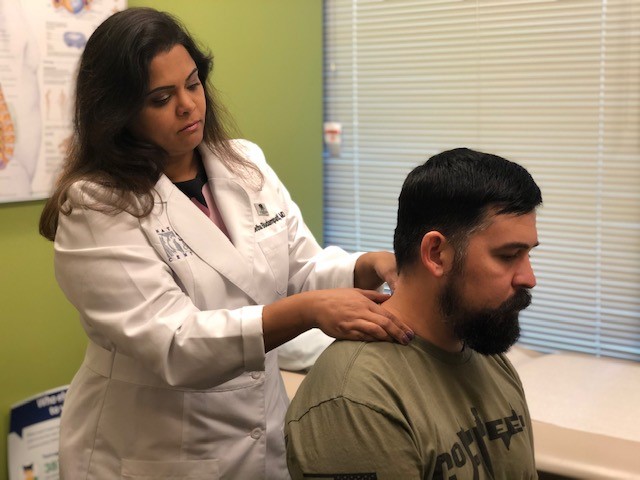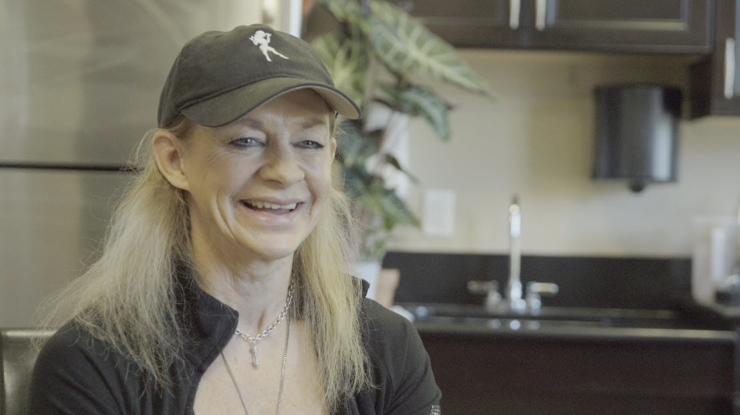Zach M.’s Story
- Author: Zach M.


"For anyone who lives with chronic pain and has given up hope, Zach’s story offers an example of resilience and optimism. We appreciate his service and his willing-ness to share this story with us."
After Zach joined the Air Force as a Signals Analyst, he was transferred to an Army Weapons Intelligence team, and went to Iraq to do field work. The team’s job was to disable explosives and to look for any finger prints or DNA that the bomb maker left behind. This was important work since it could help identify and prosecute bomb makers at a later time.
One day, his team got a tip about an explosive that needed to be disabled. The team went to the indicated spot and stopped 300 feet from a pile of dirt that appeared to hide the device. According to protocol, they released a robot to investigate, while they remained in the truck.
At that point, everything happened in a split second. There was an explosion, smoke, and Zach blacked out.
Zach awoke in a hospital on a base in Iraq. He learned that instead of hiding the bomb in the pile of dirt, the bomb maker had intentionally hidden 200 pounds of home-made explosives under the spot where Zach’s truck had stopped. The bomb maker had set up a trap.
Zach cannot recall the blast. He later read in reports that the explosion was so powerful that it broke the Army truck’s 4 inch windows. The blast threw the truck’s driver into Zach and Zach, in turn, was thrown into a metal door. This caused him severe shoulder and back trauma and worsened some injuries from earlier years.
Zach had a long road to recovery. He suffered from Post Traumatic Stress Disorder (PTSD) and a Traumatic Brain Injury (TBI) that kept him from returning to his previous service job. He had severe shoulder pain as well as upper and lower back pain. He could not lift anything, due to the painful shoulder. Bending was extremely painful and walking was nearly impossible. When he returned to the United States, the pain kept him from being able to play with his two young sons. He felt like he was on the sidelines, “just sitting, not really participating”.
Immediately after his trauma, the Army provided Zach with treatment for the PTSD and TBI. However, treatment for his physical pain included only daily visits to a chiropractor. No one told him what exactly was causing the pain.
Zach recalls: “I had almost given up on the fact that I was physically going to feel better. I was getting help with my psychologist; I was getting help with my therapist, but my body was not getting any better”.
Then, he decided to seek care at NSPC. During the initial visit, Zach finally received a thorough evaluation that included X-rays and an MRI (Magnetic Resonance Imaging). His pain specialist took the time to review past records and to see what treatments had failed. Zach was diagnosed with Spondylosis and Degenerative Disc Disease in his thoracic (upper back) area and in the low back. These conditions involve a weakening and breakdown of structures in the spine (discs, ligaments). In most people this process occurs slowly, with advancing age. However, due to the intensity of his trauma, Zach developed these painful conditions at a young age and to a very severe degree.
Treatment with Epidurals and a Radiofrequency Neurotomy (RFN) offered Zach over half a year of relief for the lower back pain and some improvement for the thoracic pain. The shoulder pain, a result of Rotator Cuff injuries and a Frozen Shoulder, improved with steroid injections.
Overall, Zach’s pain levels decreased, allowing him to function better. He continues to see his pain specialist regularly for repeat procedures and has a combination of pain medications to help control pain flare-ups. He is able to enjoy playtime with his young sons and he has a new job where he is using his knowledge of explosive devices.
Zach appreciates the new generations of soldiers who are enlisting, in order to keep us safe at home. His advice to fellow injured Veterans is to seek a clear understanding of what is causing their pain, in order to find the best treatment.
For anyone who lives with chronic pain and has given up hope, Zach’s story offers an example of resilience and optimism. We appreciate his service and his willingness to share this story with us.

_030122.jpg)
_030122.jpg)
